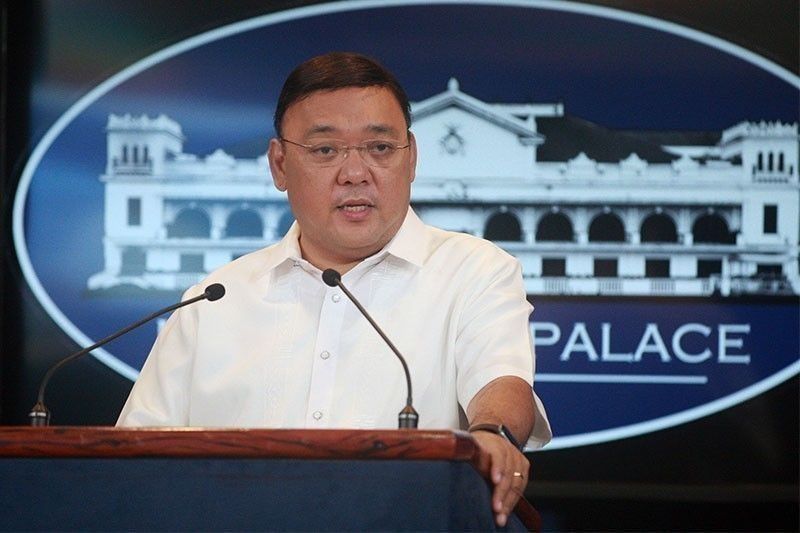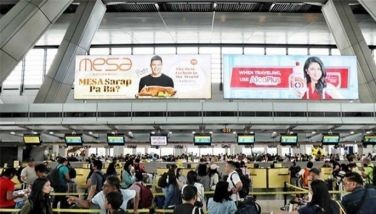‘Balik Probinsya’ to return – Palace

MANILA, Philippines — The “Balik Probinsya, Balik Pag-Asa” program will resume after the government has assisted the people stranded in Metro Manila, according to Malacañang.
Presidential spokesman Harry Roque said many Filipinos now believe that life is better in the province as the Philippines faces the coronavirus disease 2019 (COVID-19) pandemic.
“I think in the medium and long-term, (the Balik Probinsya) will continue. Because of this crisis, many Filipinos suddenly realized that life is better in the province. At least in the province, you won’t go hungry, you can plant crops, you can catch fish,” Roque told GMA News over the weekend.
“We are just waiting for the improvement of the capacities of the provinces, for them to have their own swabbing (centers) and (polymerase chain reaction) test laboratories so that they can undergo tests in Manila before they go home, and there will also be testing in the provinces before they return to their homes,” he added.
The “Balik Probinsya, Balik Pag-Asa” program, which was created through Executive Order 114, seeks to “ensure balanced regional development and equitable distribution of wealth, resources and opportunities through policies and programs that boost countryside development.”
The program offers cash, education, health, livelihood and housing assistance to people who will return to their provinces to decongest Metro Manila.
About 53,000 persons have expressed interest to avail themselves of the benefits of the program.
Gabriela party-list, however, has warned that the program could lead to a wave of coronavirus infections because of lack of mass testing.
Ormoc City Mayor Richard Gomez has also criticized the supposed lack of coordination on the arrival of Balik Probinsya beneficiaries, but officials have denied this.
Last Friday, Balik Probinsya executive director and National Housing Authority general manager Marcelino Escalada Jr. announced that the program would be suspended to prioritize the return of people stranded in Metro Manila, like overseas Filipino workers (OFWs), construction workers, students and tourists.
Escalada said Balik Probinsya trips might resume next month if the number of stranded persons going to provinces goes down.
Roque said all people who were sent home to the provinces had undergone COVID testing.
“That’s why it’s surprising that there are people with COVID-19 who went home (to their provinces),” the Palace spokesman said in Filipino.
More than 25,000 people have been infected by the coronavirus, according to latest data from the Department of Health.
‘More organized’ Balik Probinsya
Meanwhile, Vice President Leni Robredo yesterday called for a “more organized” Balik Probinsya program of the government, noting the importance of providing livelihood in the countryside to make the initiative successful.
“Balik Probinsya is not that easy… it must be organized. If there are no jobs waiting for the returning residents, they’ll just return (to Metro Manila),” Robredo said over radio station dzXL.
The Vice President also appealed to the national government to closely coordinate with local government units (LGUs) receiving the stranded Filipinos from Metro Manila.
She said some of those who tested negative for the COVID-19 a few months ago might be already infected by the time they leave the capital.
“This happened because of unsystematic procedure and lack of coordination with the LGUs,” Robredo said in Filipino.
Two beneficiaries of the Balik Probinsya program reportedly tested positive after arriving in Leyte from the National Capital Region.
Hundreds of OFWs and locally stranded individuals camped out under the Ninoy Aquino International Airport’s elevated expressway last week while waiting for their flights to their respective destinations.
The stranded passengers were brought to the nearby Villamor Airbase Elementary School and Philippine Army Wellness Center in Fort Bonifacio, Taguig City.
Medical clearance certificates
In another development, police will start requiring all domestic passengers to show medical clearance certificates (MCC) before boarding ships and airlines as a preventive measure against the spread of COVID-19.
Joint Task Force COVID Shield commander Lt. Gen. Guillermo Eleazar said the move would ensure the safety of all passengers and harmonize protocols being implemented by LGUs as the government turned its focus to the “Hatid Tulong” program for the speedy transport to the provinces of stranded people, especially returning OFWs.
“The MCC for travelers is one of the minimum health safety protocols that we have to continuously observe for the safety of everybody because as we have been saying even before, the threat of coronavirus infection is still high,” Eleazar said.
The move came after airline industry stakeholders asked the government to require all domestic passengers to produce a medical clearance certificate before they are allowed to board the plane.
Eleazar said the task force had already coordinated the measure with the Inter-Agency Task Force (IATF) on Emerging Infectious Diseases for the “strict implementation” of the policy.
“We have to require the MCC for the peace of mind not only of all ship and airline passengers, but also of local government officials and their constituents of the travelers’ points of destination across the country,” he added.
The airline industry stakeholders argued that the MCC would also help LGUs in implementing their respective quarantine protocols as the government helps ferry stranded passengers back to provinces.
Currently, locally stranded individuals and emergency travelers have to secure a travel authority approved and issued by local police chiefs and station commanders.
To secure travel authorities, MCCs issued by local health offices from the LGU of origin need to be submitted.
Eleazar said the “no MCC, no boarding” policy covers even those classified as authorized persons outside residence or APOR, whose domestic travels are allowed if they are work-related.
APORs are allowed to secure MCCs from Department of Health-accredited hospitals and clinics. Helen Flores, Neil Jayson Servallos
- Latest
- Trending





























